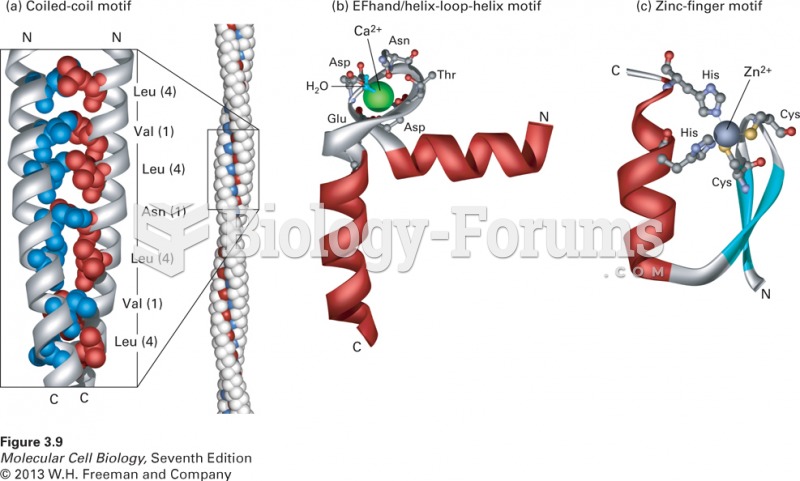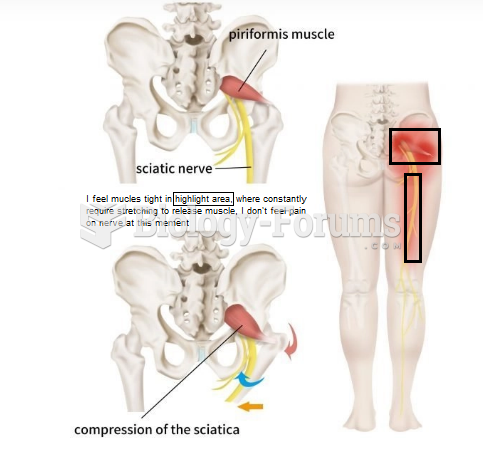|
|
|
About 3% of all pregnant women will give birth to twins, which is an increase in rate of nearly 60% since the early 1980s.
Over time, chronic hepatitis B virus and hepatitis C virus infections can progress to advanced liver disease, liver failure, and hepatocellular carcinoma. Unlike other forms, more than 80% of hepatitis C infections become chronic and lead to liver disease. When combined with hepatitis B, hepatitis C now accounts for 75% percent of all cases of liver disease around the world. Liver failure caused by hepatitis C is now leading cause of liver transplants in the United States.
Approximately 500,000 babies are born each year in the United States to teenage mothers.
The heart is located in the center of the chest, with part of it tipped slightly so that it taps against the left side of the chest.
The calories found in one piece of cherry cheesecake could light a 60-watt light bulb for 1.5 hours.







